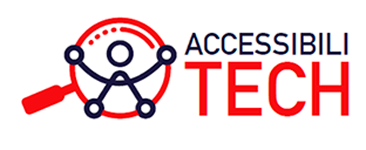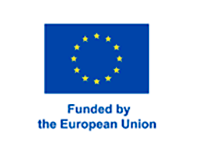@carlo41
Perfil
Registrado: hace 9 meses
Nursing the Narrative: Inside the Growing Industry of BSN-Specific Writing Consultancies The healthcare landscape is evolving rapidly, and with it, the educational BSN Writing Services requirements for nurses continue to intensify. As Bachelor of Science in Nursing (BSN) programs respond to the increasing complexity of patient care, their writing requirements have expanded considerably—creating significant challenges for students and unexpected opportunities for a new category of educational entrepreneurs. Over the past decade, a specialized industry of BSN writing consultancies has emerged, offering targeted support for nursing students struggling to balance clinical excellence with academic writing demands. The Birth of a Specialized Industryc "What we've witnessed is the rapid professionalization of what was once an informal support network," explains business analyst Morgan Zhang, who tracks educational service sectors. "Five years ago, most nursing writing support came from individual tutors or general academic services. Today, we see sophisticated enterprises with nursing-specific methodologies, proprietary resources, and venture capital backing." This transformation reflects fundamental changes in both nursing education requirements and student demographics. As nursing programs increasingly emphasize scholarly communication alongside clinical skills, they simultaneously enroll more diverse student populations, including career-changers, international students, and first-generation college attendees who may lack prior exposure to academic writing conventions. The resulting gap between writing expectations and student preparation has created market conditions perfect for specialized service providers. Leading BSN writing consultancies now report annual growth rates of 15-25%, with some establishing multi-million dollar operations spanning both digital and in-person service models. Service Models and Business Strategies The business structures within this industry reveal distinct Nursing Assignments Online approaches to meeting nursing students' writing needs: The Platform Play: Technology-focused companies have developed subscription-based digital platforms offering automated feedback, nursing-specific templates, and limited personal coaching. These businesses prioritize scalability, typically charging $30-100 monthly for access to their systems. The Coaching Collective: Services employing current or former nurse educators provide personalized feedback and structured writing guidance. These businesses operate with higher touch points and correspondingly higher prices, typically charging $75-200 per assignment or $300-600 for monthly coaching packages. The Institutional Partner: Some consultancies have developed B2B models, contracting directly with nursing schools to provide supplemental writing support as authorized partners. These arrangements provide stable revenue streams while conferring legitimacy through formal institutional relationships. The Specialized Boutique: Niche providers focus exclusively on specific nursing documentation types like care plans, evidence-based practice papers, or clinical reflections. These specialized services compete on deep expertise rather than comprehensive offerings. The most successful ventures have identified sustainable competitive advantages beyond simply offering writing assistance. Industry leader NurseScribe attributes its growth to proprietary assessment technology that identifies patterns in nursing students' writing challenges, allowing for more targeted intervention. Meanwhile, competitor ClinicalCompose has developed an extensive database of nursing-specific writing exemplars categorized by assignment type and program level. The People Behind the Businesses Perhaps the most fascinating aspect of this industry is its workforce—a unique nurs fpx 4000 assessment 1 talent pool bridging healthcare expertise and educational support. Leading BSN writing consultancies typically employ three distinct staff categories: Nurse Educators: Often current or former nursing faculty with advanced degrees who provide subject matter expertise and understand assessment expectations. These professionals typically earn $50-85 hourly for consultancy work. Writing Specialists with Healthcare Backgrounds: Individuals with combined expertise in academic writing and healthcare knowledge who provide the core service delivery. These professionals typically command $35-60 hourly. Educational Technology Developers: In platform-based businesses, tech talent with understanding of both educational assessment and healthcare documentation develops and maintains digital tools. For many nurse educators, these consultancy roles offer attractive alternatives to traditional academic positions, providing better compensation, more flexible scheduling, and freedom from institutional politics. Sandra Williams, who transitioned from full-time nursing faculty to a writing consultancy director, explains: "I'm using my nursing education expertise in a more entrepreneurial context while helping students who really need support. The business model allows me to earn significantly more than I did in academia while maintaining work-life balance." This talent migration has created some tension with nursing programs, as valued faculty sometimes reduce teaching loads or leave altogether for consultancy opportunities. However, it has also created new career pathways for nursing professionals seeking nurs fpx 4005 assessment 1 alternatives to direct patient care or traditional academic roles. Market Segmentation and Student Demographics The customer base for BSN writing services reflects the diversity of contemporary nursing education. Market research reveals several distinct student segments utilizing these services: Career Transitioners: Professionals entering nursing as a second career who possess clinical aptitude but limited recent academic writing experience. This segment often has financial resources for premium services but significant time constraints. International Nursing Students: Learners navigating both medical terminology and academic English conventions simultaneously. This growing segment often requires specialized ESL support alongside nursing-specific writing guidance. Accelerated Program Students: Those in intensive, compressed BSN programs where time pressure makes writing support particularly valuable. This segment prioritizes efficiency and often utilizes more comprehensive service packages. Struggling Traditional Students: Young adults who excel clinically but face writing challenges that threaten program completion. This segment often begins with basic services and expands usage if initial support proves beneficial. RN-to-BSN Completers: Working nurses returning for degree completion who nurs fpx 4015 assessment 1 face unfamiliar scholarly writing requirements. This segment tends to focus on specific challenging assignments rather than ongoing support. Successful businesses have developed targeted marketing strategies and service offerings for these distinct segments. For example, TimeNurse specifically targets accelerated program students with streamlined processes designed to accommodate compressed timelines, while ScholarNurse focuses primarily on international nursing students with combined language and nursing writing support. Innovation and Future Directions As the industry matures, several innovation trends are reshaping service offerings and business models: AI Integration: Leading companies are incorporating artificial intelligence to provide preliminary feedback on nursing documentation structure, terminology accuracy, and evidence integration before human review. Simulation-Based Learning: Advanced services now offer simulated patient scenarios requiring documentation responses, helping students practice real-world charting in consequence-free environments. Specialized App Development: Mobile applications designed specifically for nursing students now provide on-demand writing guidance during clinical rotations when documentation questions arise. Vertical Integration: Some businesses are expanding beyond writing to offer comprehensive academic support including NCLEX preparation, clinical skills reinforcement, and job application assistance. Outcomes Research: As competition intensifies, companies are investing in research demonstrating their impact on student success metrics, using results to differentiate their services and justify premium pricing. These innovations suggest the industry is evolving beyond basic writing assistance toward more comprehensive support for nursing student success—a trend likely to continue as healthcare education requirements intensify. Conclusion: A Maturing Industry at Education's Intersection The specialized industry of BSN writing consultancies represents more than simply a response to student demand—it reflects fundamental shifts in nursing education, healthcare workforce development, and educational support models. As writing requirements in nursing programs continue intensifying to match healthcare's documentation demands, these businesses will likely play an increasingly significant role in the educational ecosystem. For nursing students navigating the challenging terrain between clinical excellence and academic writing proficiency, these specialized services provide strategic support that can mean the difference between program completion and attrition. For nursing professionals with combined clinical and educational expertise, they offer alternative career pathways outside traditional settings. And for nursing programs themselves, they represent both potential partners and competitors in the quest to develop communication-competent graduates. As this industry continues maturing, its evolution will reflect broader trends in healthcare education, professional development, and academic support—making BSN writing consultancies not merely service providers but important indicators of nursing's ongoing transformation.
Foros
Debates iniciados: 0
Respuestas creadas: 0
Perfil del foro: Participante

